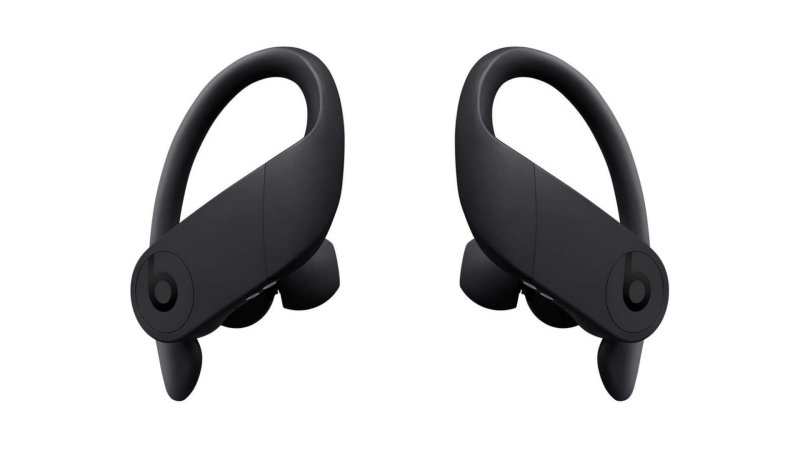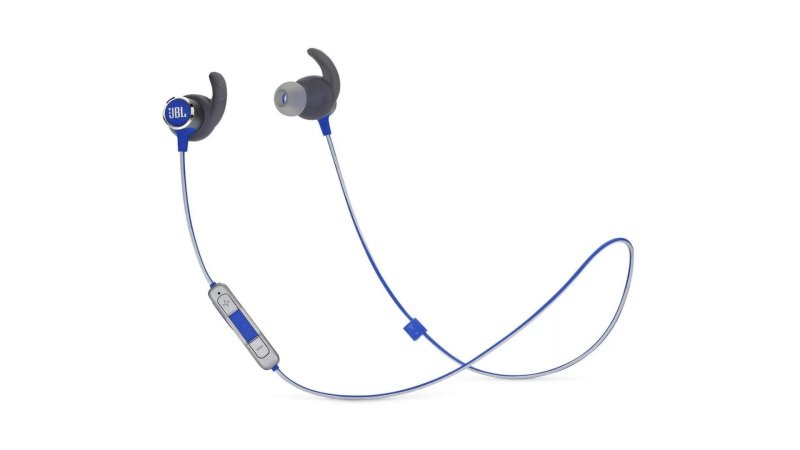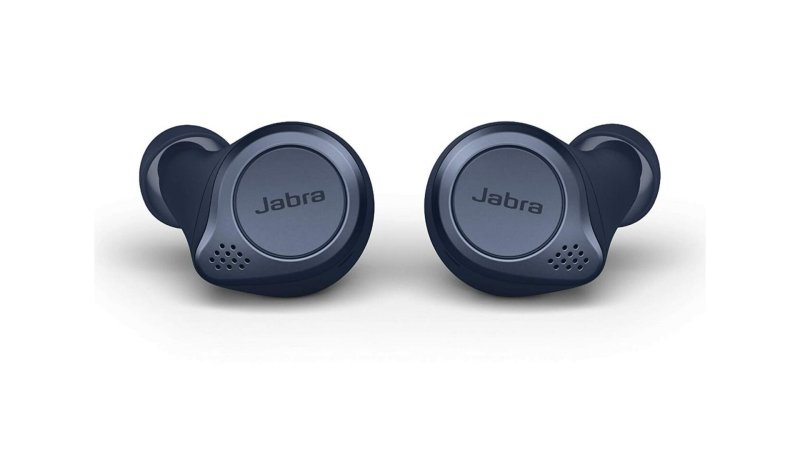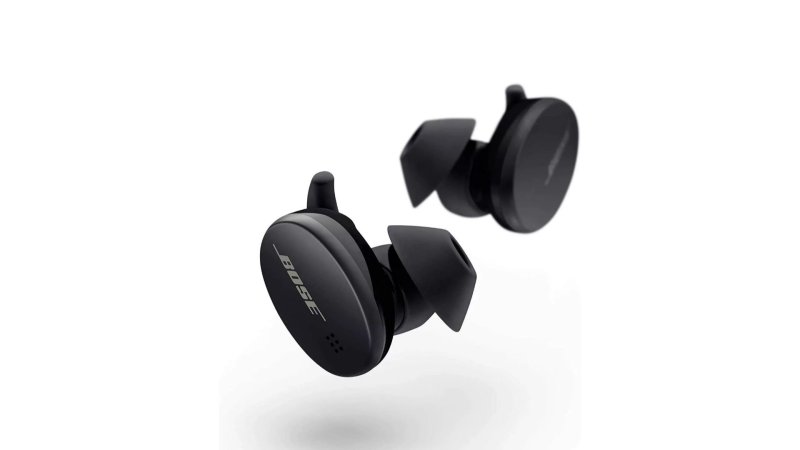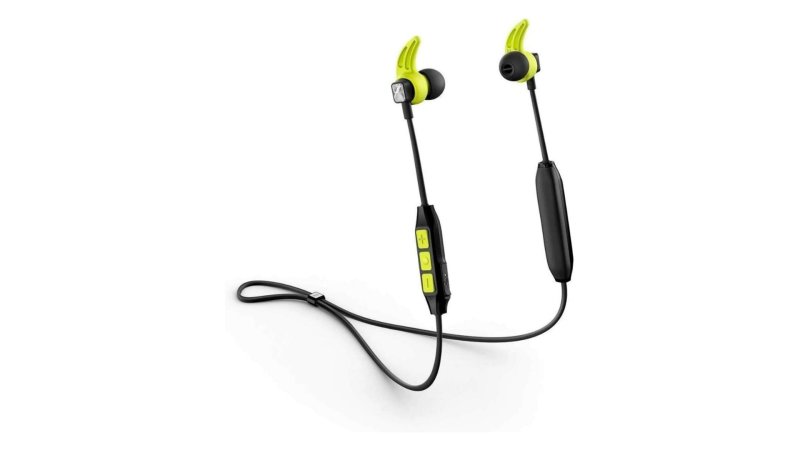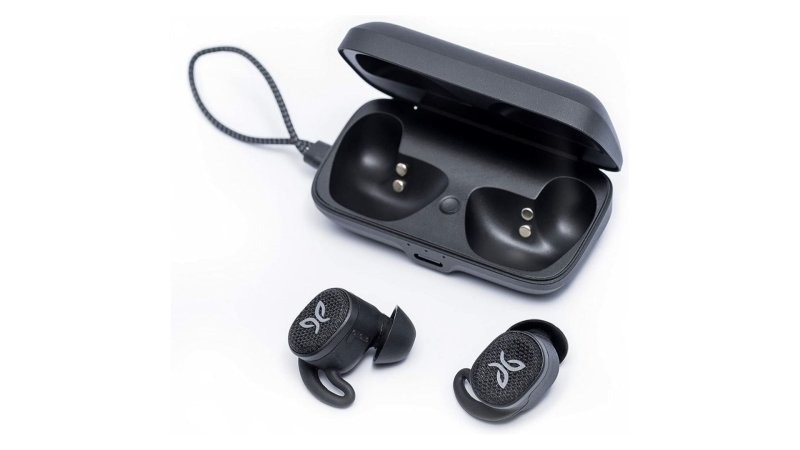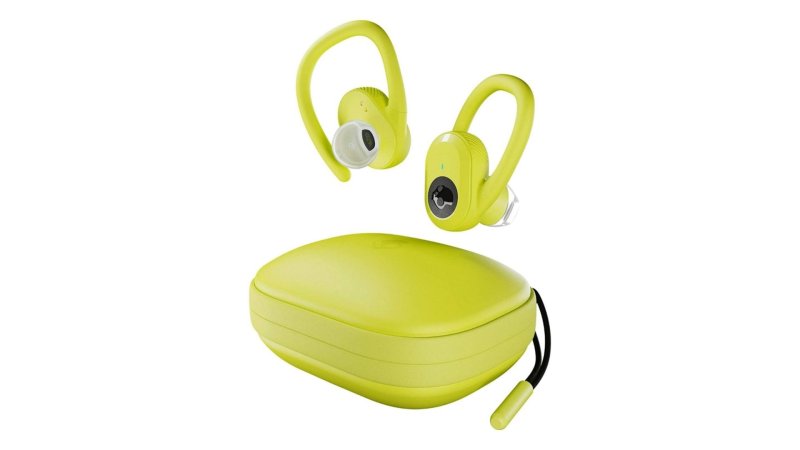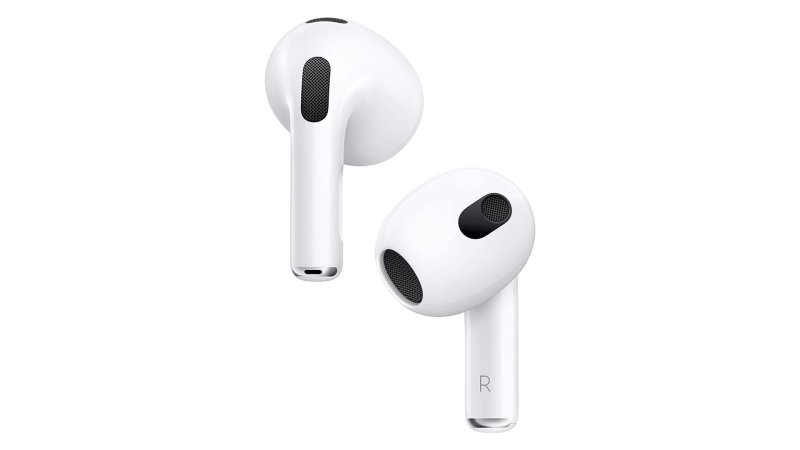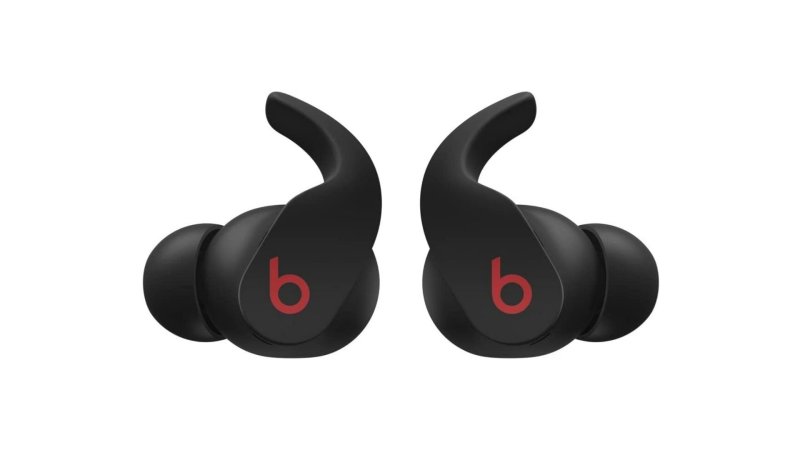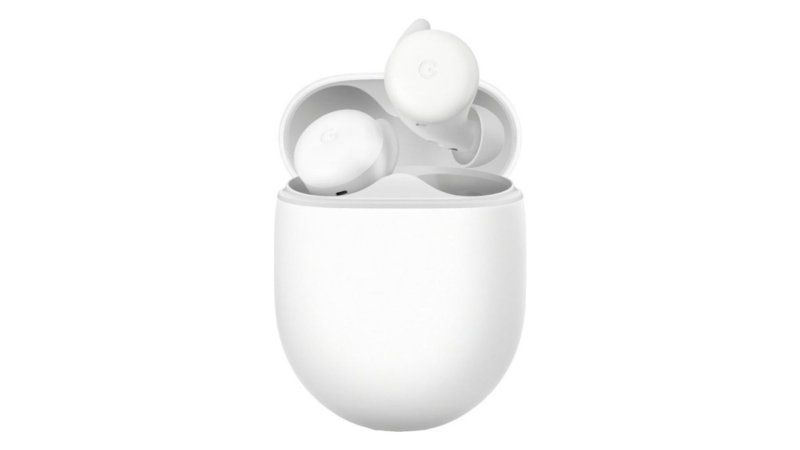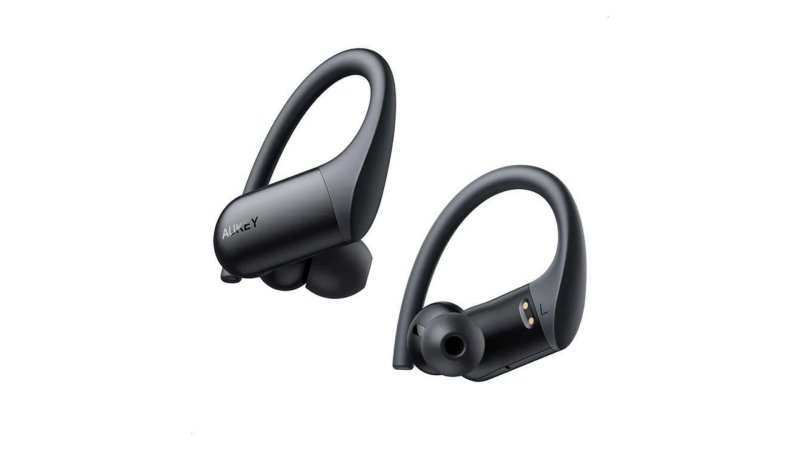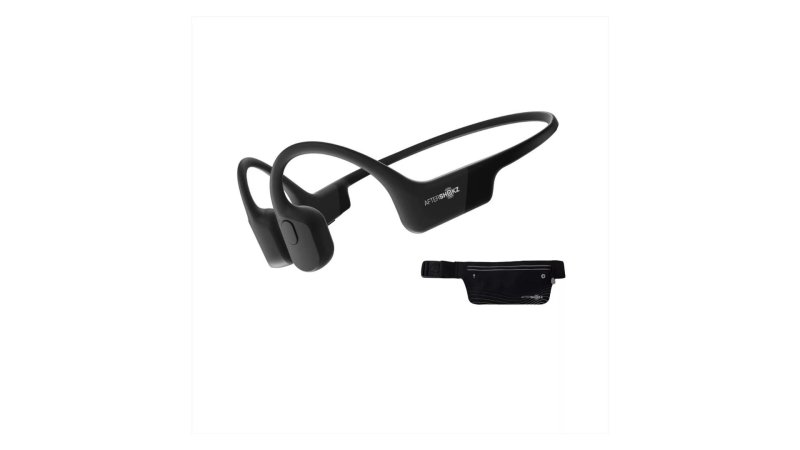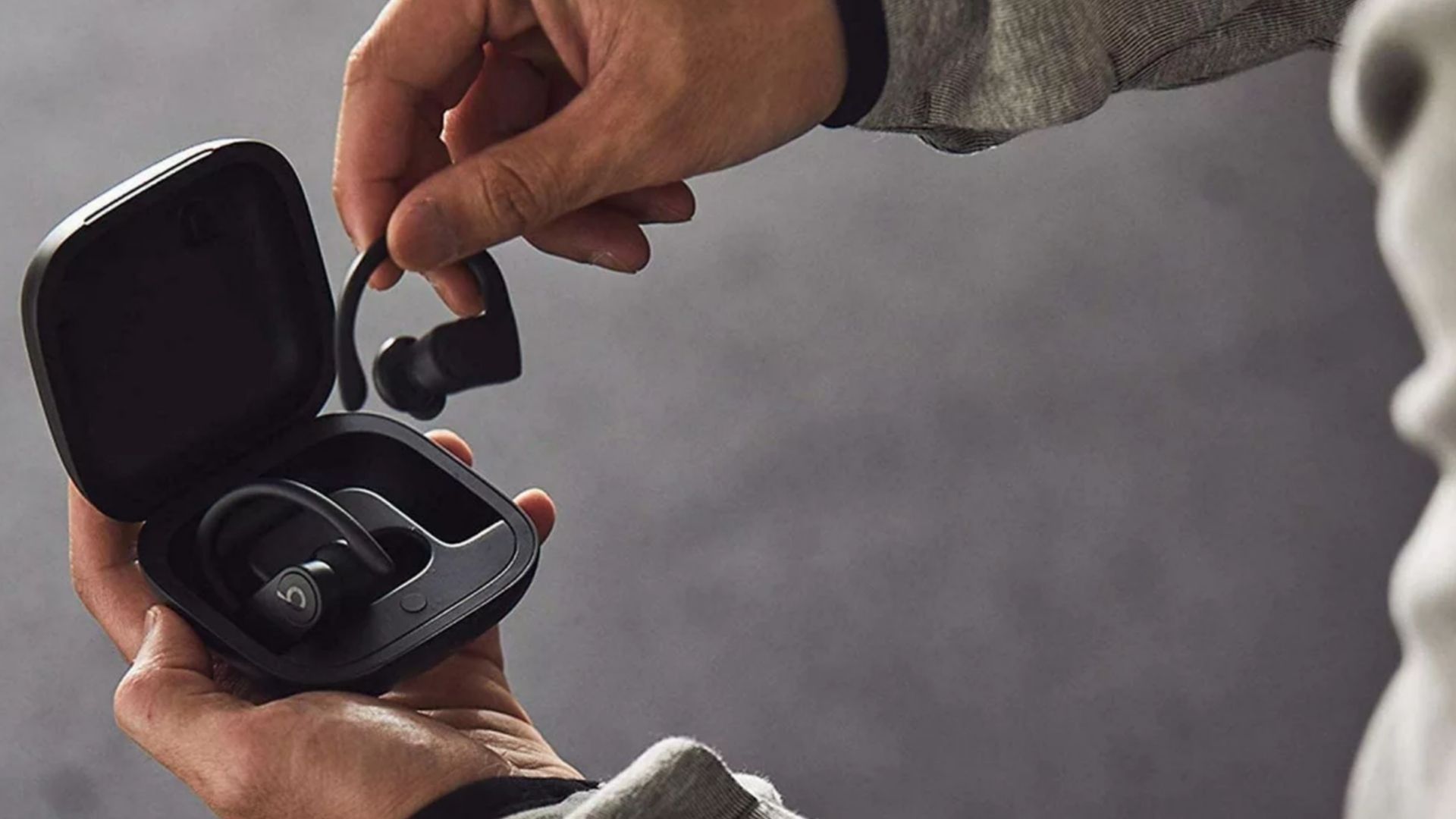

We may earn revenue from the products available on this page and participate in affiliate programs.
Whether you are a marathon runner or a casual jogger, you’re going to need a good pair of running headphones to listen to your favorite pump-up playlist. In recent years, with the introduction of Apple AirPods, many headphone companies have abandoned their cords and gone completely wireless. This has enabled runners to go hands-free, keeping phones in a pocket, with no need for annoying cords flying about.
When it comes to running headphones, the options are now seemingly endless. From noise-canceling headphones to bone conduction headsets and wire-connected earbuds, there are ample pairs to choose from. Whether you are looking to prioritize audio quality, comfort, or battery life, one of these running headphones is bound to join your list of fitness equipment you need in your gym bag.
Best Overall
Beats PowerBeats Pro
Pros
- Good, secure fit with ear hooks
- Well-balanced audio
- Pairs seamlessly with IOS
- Easy to use controls
- 9-hour battery life
Cons
- Pricey
- Big charging case
Product Specs
- Battery life: 9 hours, 27 hours with charging case
- Weight: 0.72 ounces
- On-ear controls: Yes
Best Value
JBL Reflect Mini 2
Pros
- Affordable
- Good, secure fit
- Harder to lose, with wire connection
- Reflective cables for nighttime visibility
- 10-hour battery life
Cons
- Don’t have charging case
- Heavier than other models
Product Specs
- Battery life: 10 hours
- Weight: 8 ounces
- On-ear controls: No
Editors Pick
Jabra Elite Active 75t
Pros
- Secure fit
- Customizable sound with app
- Water- and sweat-proof
- Option for active noise cancellation
- More affordable than many competitors
Cons
- Shorter battery life than competitors
Product Specs
- Battery life: 7.5 hours, 28 with charging case
- Weight: 0.2 ounces
- On-ear controls: Yes
Most Secure Fit
Bose Sport Earbuds
Pros
- Extremely secure fit, personalizable
- Excellent sound quality
- Connects with Bluetooth 5.1 for stable connectivity
Cons
- Not as waterproof as some competitors
- Relatively short battery life
- Limited features
Product Specs
- Battery life: 5 hours, 15 with charging case
- Weight: 0.3 ounces
- On-ear controls: Yes
Best Wire-Connected Running Headphones
Sennheiser CX Sport
Pros
- Customizable, secure fit
- Harder to lose than truly wireless headphones
- Full-bodied bass and well-balanced audio
- Relatively affordable
Cons
- Not as waterproof as some competitors
- Relatively short battery life, no charging case
Product Specs
- Battery life: 6 hours
- Weight: 0.53 ounces (both headphones and wire)
- On-ear controls: No
Best Truly Wireless Running Headphones
Jaybird Vista 2
Pros
- Durable design
- Compact charging case
- Good, customizable fit
- Well-balanced sound, customizable
Cons
- Not best active noise cancellation
Product Specs
- Battery life: 8 hours, 24 with charging case
- Weight: 0.2 ounces
- On-ear controls: Yes
Best Truly Wireless Earbuds With Ear Hooks
Skullcandy Push Ultra Wireless Earbuds
Pros
- Affordable
- Extra secure fit
- Flexible ear hooks
- Earbud locating technology
- Lange battery life with case
Cons
- Large case
- Doesn’t tune out external sound
- Heavy
Product Specs
- Battery life: 6 hours, 40 with case
- Weight: 1.76 ounces
- On-ear controls: Yes
Best Lightweight Running Headphones
Apple AirPods (3rd Generation)
Pros
- Rich sound
- Lightweight
- Water-resistant
- Highly compatible with iOS
Cons
- Some people struggle with fit
- Don’t tune out external sound
- Spendy
Product Specs
- Battery life: 6 hours, up to 30 hours with case
- Weight: 0.15 ounces
- On-ear controls: Yes
Best Noise-Canceling Headphones for Runners
Beats Fit Pro
Pros
- Active noise canceling
- Highly compatible with iOS
- Find Me setting on app
- Secure, flexible fit
Cons
- May be hard to hear where sounds coming from with HearThrough feature
Product Specs
- Battery life: 6 hours (with ANC on), 24 hours with charging case
- Weight: 0.2
- On-ear controls: Yes
Best Running Headphones for Android Users
Google Pixel Buds A-Series
Pros
- Great compatibility with
- Android devices
- Affordable Lightweight, secure fit
- Find Me feature
Cons
- Relatively short battery life
- No active noise cancellation
- No volume control on buds
Product Specs
- Battery life: 5 hours, 24 with charging case
- Weight: 0.17 ounces
- On-ear controls: Yes
Best Running Headphones Under $50
Aukey EP-T32
Pros
- Affordable
- Secure fit with ear hooks
- Extremely water resistant, durable
Cons
- No hear-through mode
- Large case
- No volume controls on earbuds
Product Specs
- Battery life: 7 hours, 35 with charging case
- Weight: 0.37 ounces
- On-ear controls: Yes
Best Bone Conduction Headphones
AfterShokz Aeropex
Pros
- Good situational awareness with bone conduction technology
- Comfortable, secure fit
- Customizable sizes
Cons
- Vibrate slightly at higher volume
- Short battery life, with no charging case
Product Specs
- Battery life: 8 hours
- Weight: 0.9 ounces (whole product)
- On-ear controls: Yes
Why you should trust us
A long-time runner myself, I understand the need for a quality pair of headphones. I have been slow to transition to wireless headphones, so reviewing these products was a great opportunity for me to familiarize myself with what’s on the market before purchasing a pair myself. I understand the trade-offs runners face when it comes to headphones: do you want to block out all outside noise so you can focus on pushing yourself, or should you stay attuned to your surroundings to avoid potential dangers? I pride myself on being able to find the highest quality products out there, for the most affordable price, so when it comes to choosing running headphones, you can trust that I will lead you to the right place.
Types of running headphones
Truly wireless
This type of headphones has no cord whatsoever. These can come in many shapes and sizes; some rely on ear hooks to stay in place, like the Beats PowerBeats Pros, while others have little fins that stabilize the earbuds within the ears, like the Bose Sport Earbuds. Some options, like the popular Jabra Elite Active 75t, stay snug in most ears without ear hooks or wingtips.
These options come with a charging case that often provides a couple more full charges, and they are often lightweight enough to forget they are even in your ears. The downside of wearing wireless earbuds is that they can be easy to lose. Luckily, many of these options have a corresponding app that will locate them at a moment’s notice.
Wire-connected earbuds
This type of running headphone features two earbuds connected by a wire that rests in front of or behind the neck. They often still utilize Bluetooth, as most of these headphones no longer have a cord that plugs into the phone. This option can be good for people worried about losing small wireless headphones to a sewage drain or having them chewed by a dog. They also often come with ear hooks or ear fins for extra security.
Popular versions of this type of headphones include the JBL Reflect Mini 2 and the Sennheiser CX Sport, both of which are made for active wear.
Bone conduction headphones
This type of headphones has come about to let users listen to music or podcasts, while also staying attuned to their surroundings. These headsets are even required now in some running races, as headphones that cancel out outside noise completely can put runners at risk. That’s why AfterShokz has pioneered bone conduction headphones, which emit sound by sending vibrations to the inner ear, rather than resting inside the ear. This leaves eardrums open to hearing external noises and keeps runners alert to potential dangers.
While AfterShokz has a variety of similar products, we picked the AfterShokz Aeropex as the best bone conduction headphones since they provide a slim, secure fit and offer great situational awareness.
Key features of running headphones
Battery life
While traditional headphones with a cord may not require any charging, when it comes to wireless headphones, battery life is something to keep on your radar. Most of the truly wireless headphones come with a charging case, which can offer a couple of extra full charges. With these options, users just need to charge the case once in a while with a USB, and then the earbuds themselves will charge whenever they’re in the case. Wire-connected and bone conduction headphones typically just charge via USB.
Out of all the headphones reviewed above, battery life for one use varies from five to 10 hours, though this can be extended to up to 40 hours with a charging case.
Awareness
Many top-line headphone models feature active noise cancellation, which allows users to tune out external noises like construction sounds or loud gym music. These options typically seal into the ear, and their effectiveness can vary depending on which brand you choose.
Some of these headphones also have a hear-through feature, which enables users to choose how much they want to tune into their outside environment. This can be especially helpful when you are running outside and want to stay attuned to your surroundings. Wearing bone conduction headphones, in particular, will ensure you can hear what’s happening around you while grooving out to your music.
Durability
Running headphones are made to be extra durable. Most options these days are sweatproof and waterproof to some degree. Oftentimes, these headphones can withstand being dropped in a puddle or being worn in a torrential downpour, though make sure to check out their water-resistance rating to understand what they can handle.
Benefits of running headphones
Sweat and waterproof
As stated above, sporty headphones are often made to withstand sweat and be resistant to water. This means that you can be free to push yourself to your limits, without worrying about ruining your headphones. For a great “earth proof” option, look towards the Jaybird Vista 2, which have a military-grade certification.
Cord-free
Take the leap and leave that annoying headphone cord behind. With wireless headphones, you can finally jog hands-free and keep your phone tucked away in a running backpack or pocket.
Increased focus
A good pair of headphones can make all the difference when you’re running. Whether you are motivated by heavy bass or, like me, you are motivated by adventure podcasts, a quality pair of headphones can be a lifesaver when you are running on a treadmill in a monotonous setting and can be the key to distracting yourself into running that extra few miles.
Running headphones Pricing considerations
Budget
There are plenty of great headphones out there for under $50. We recommend the JBL Reflect Mini 2, a wire-connected option, or the Aukey EP-T32, a truly wireless choice. These are both great value deals, with secure fits and high durability, and are great choices for casual runners or gym users. Though you will get great bang for your buck, don’t expect all the fancy features that spendier headphones have.
Mid-range
These headphones range from $50 to $150. This includes high-quality options like our editors pick, the Jabra Elite Active 75t, along with the Bose Sport Earbuds, the Sennheiser CX Sport and most of the other options on our list. You can find truly wireless, wire-connection, and bone conduction headphones in this category. These options have a wide range of features, from active noise cancellation to lengthy battery lives.
Premium
These headphones typically cost more than $150. This includes popular picks, such as the third generation Apple AirPods or the Beats PowerBeats Pro. These options have top-of-the-line features, superb iOS compatibility, and excellent audio quality. If you are willing to spend a few extra bucks, these are the running headphones for you.
How we chose our top picks
When choosing our favorite running headphones, we first considered which product excels in each category, looking at factors such as sound quality, comfort, battery life, and waterproof level. We identified the best of each category of running headphones, from truly wireless earbuds to wire-connected or bone conduction headphones. As someone who has only used Apple AirPods myself, I knew there were better products out there, made specifically for fitness. So, I surveyed my contacts in the running world and scoured product reviews online in order to identify my top picks. I made sure to look at several sources for each product, including the New York Times’s Wirecutter, TechRadar, Runner’s World, Tom’s Guide, and more.
FAQs on running headphones
You’ve got questions, Task & Purpose has answers.
Q. How do you know if running earbuds fit well?
A: Your earbuds should feel snug and comfortable in your ear, so when you shake your head, they won’t fall out. With most earbuds, you will also notice that — if they fit properly — they are blocking out some surrounding noise. If your earbuds come with several tips and/or ear fins, make sure to customize them accordingly before taking off on a run.
Q. Do headphones for running need to be water-resistant?
A: They don’t have to be water-resistant, but this can help if you are a heavy sweater or if you run in the rain. Check out the waterproof rating on headphones before purchasing, and make sure to spring for a weatherproof option if you know you will be running in downpours.
Q. Do software features matter when picking out workout headphones?
A: It depends on what you are in the market for. Some of our picks for running headphones have a corresponding app with features like adjusting the bass levels or locating your earbuds if lost. However, headphones with additional software features are typically pricier, so if you are someone that just goes on a jog once in a while, these may not be as important.
Q. Do headphones fall off when running?
A: Yes, headphones can fall out while running, so make sure to find a fit that works for you. Many headphones now come with several earbud tips and/or ear fins, so you can customize them to fit your ears.
Our gear section
Hanna Merzbach is a journalist living in Bend, Oregon. She writes everything from breaking news and magazine features to outdoor gear reviews. Her writing on housing and homelessness and the uneven impacts of climate change has appeared in The Atlantic, High Country News, and Mother Jones. She has also done reporting stints with Lookout Santa Cruz and Portland’s NBC affiliate, KGW. In her free time, you can find her scaling rock walls or backpacking in the mountains.
